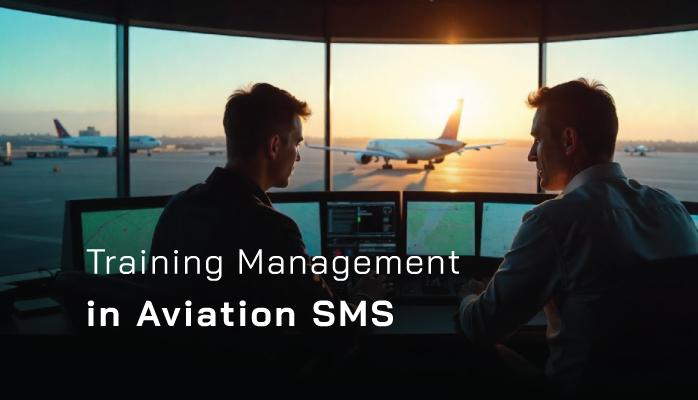Management’s Role in SMS

Managers must take an active role in SMS to consistently improve their knowledge and experience of operations.
I believe managers need to be trained in SMS to ensure their effective participation and contribution to the SMS.
Well-constructed and well-delivered SMS training can make a huge difference in increasing managers’ understanding of the SMS and awareness of safety.
Mandated SMS Training
It is part of the organizational requirements that aeronautical service providers train all personnel involved with the SMS as commensurate with their responsibilities.
All employees should be trained to:
- Be proactive
- Report hazardous events
- Recognize hazards and risks
- Suggest improvements to the system
However, managers’ training must also include:
- How the SMS works
- Accountability for SMS
- Techniques to foster a safety culture
Related Aviation SMS Training Articles
- What Is Aviation Safety Training
- 5 Signs of Good Aviation Risk Management Training
- Best Ways to Automate Aviation Safety Training for Initial/Recurrent Requirements (Free Resources)
3 Essential SMS Training Topics for Managers

Managers have three main responsibilities concerning SMS. Focusing on these three areas is essential to training managers in SMS.
First, managers must supply their substantial knowledge of daily operations for initial and recurrent safety risk assessment sessions – as well as sessions concerning change management. Stress the importance of this task; their knowledge is invaluable to the safety manager and/or the safety office.
Second, managers ensure a consistent contribution to the SMS. To achieve this, managers need to:
- Engage employees in the SMS
- Enable reporting
- Accept being challenged
Finally, management must foster a healthy safety culture. For an SMS to be effective, people need to make safety a habit and speak up when they notice unsafe conditions or actions.
There may already be a good safety culture in the operation, in which case it is probably enough to formalize a safety policy and carry on while ensuring that employees don’t become complacent. When the culture is not ideal, then SMS implementation becomes an opportunity for cultural change. In this case, managers may need to be convinced that changing cultural safety habits is a good thing.
In either case, it is important to provide management with tools and techniques to foster and grow a culture of safety.
Related Aviation Safety Culture Articles
- What Is Safety Culture in Your Aviation SMS?
- How to Build Safety Culture in Aviation SMS
- How to Monitor Aviation Safety Culture Performance
SMS Training Resources
ICAO offers a list of upcoming seminars and classes on their website, but there are lots of places online to find quality training tools. Ultimately, quality training is what makes SMS sustainable, so it is crucial to be sure managers have the tools they need to support the SMS for years to come.
Last updated September 2025.






